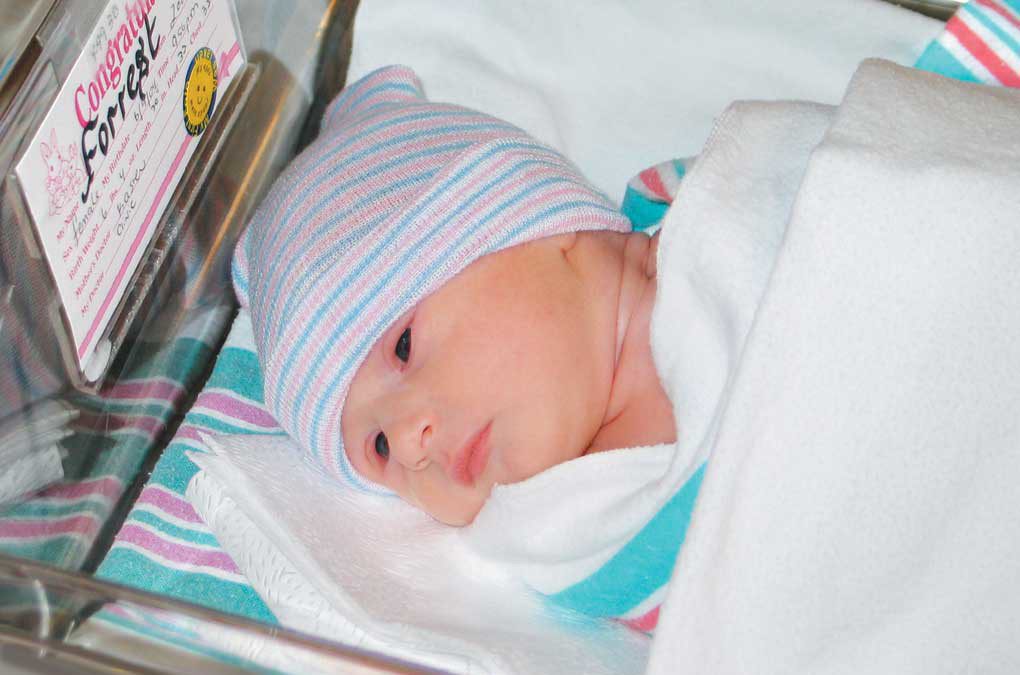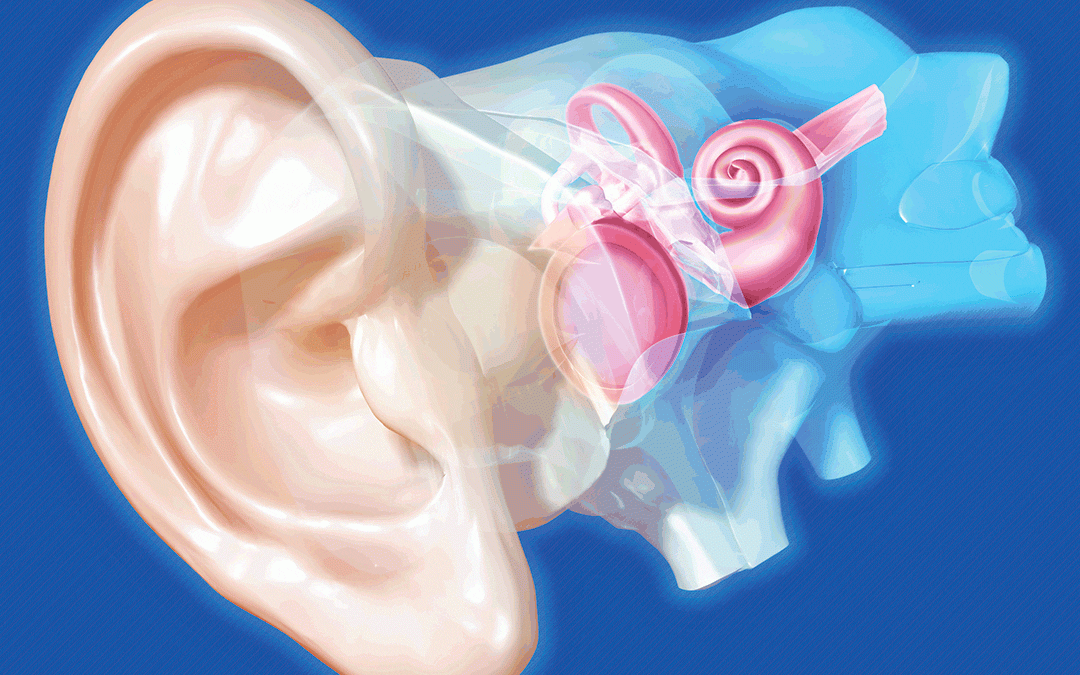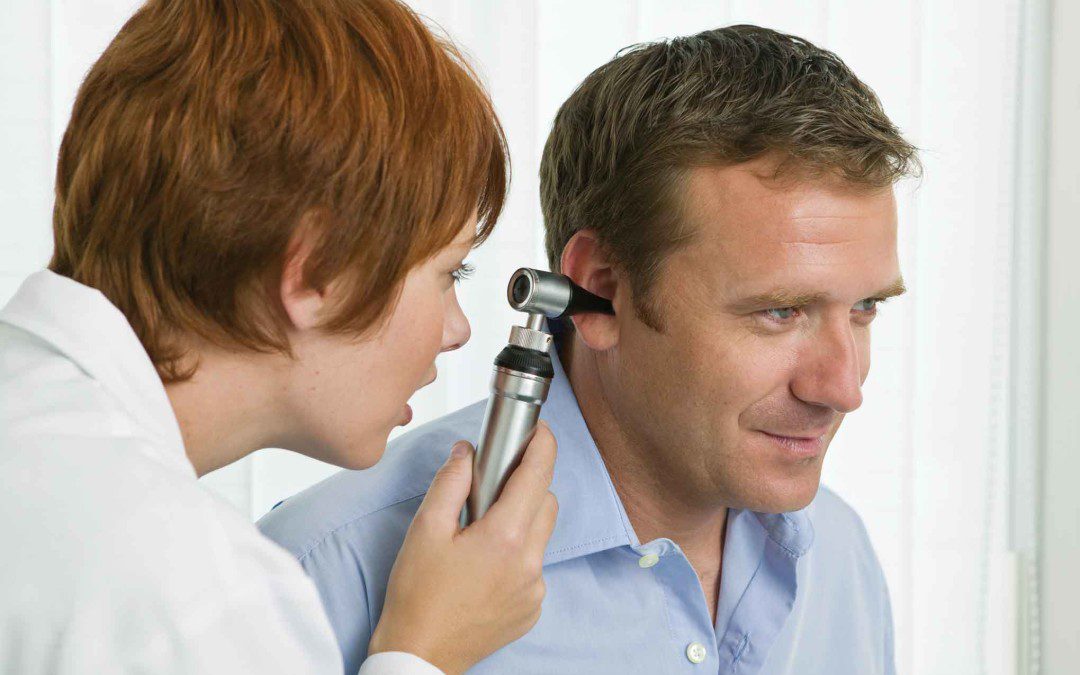Better Hearing Blog

Noise Affects Some More Than Others
While the best way to prevent hearing loss is to limit exposure to loud noise, researchers are beginning to find that some people may be more prone to noise-induced “sensorineural” (nerve-related) hearing loss than others. Thist ype of hearing loss involves irreparable damage to tiny “hair cells” in the inner ear, which convert sound vibrations into nerve impulses and transmit them to the brain. When researchers performed audiometric tests on individuals with a mutation in the gene responsible for an auditory protein called “pejvakin,” they found that people with damaged pejvakin were more susceptible to noise-induced hearing loss even when exposed to seemingly harmless sounds. This research suggests a possible genetic component in noise-induced early-onset sensorineural hearing loss.
Prolonged exposure to noise causes damage to the hair cells in the cochlea and can result in permanent hearing loss. Noise-induced hearing loss usually develops gradually and painlessly. Hearing loss can also occur as a result of an acoustic trauma, or a single exposure or very few exposures to very high levels of sound. To schedule a hearing exam, please call BETTER HEARING CENTER. New Hampshire’s premier hearing care provider.
P.S. The research described above provides further reason to protect the ears from unnecessary noise, regardless of how loud it is.

Positive Feedback
If you are considering the use of a hearing instrument, you might be interested in what other consumers have to say about their experiences. According to the latest MarkeTrak survey released by the Better Hearing Institute (published in June 2015), more than four in five survey respondents (81 percent) indicated that they were satisfied with their hearing instruments. This response confirms the notion that hearing instruments are positively affecting their relationships, work performance, general ability to communicate, overall quality of life, and ability to participate in group activities. It is also worth noting that, while those aged 65 and older are most likely to use a hearing instrument, individuals aged 35 and under with hearing impairments are not far behind. (You can find the full report here.)
Whether you are interested in reliable, easy-to-wear solutions at an affordable price, or in need of top-of-the-line hearing support, BETTER HEARING CENTER is a name you can trust for all your hearing needs. New Hampshire’s premier hearing care provider, we are the only hearing center that has served the Concord area for over 50 years. Our goal is to provide you with everything you need to know to make the right decisions for your hearing health.
P.S. The MarkeTrak IX survey mentioned above also found that most individuals with hearing difficulty have a “bilateral loss” (74%), which means they experience hearing loss in both ears that is best corrected by wearing an instrument in each ear.

Pinpointing Newborn Hearing Problems
When a hearing problem is detected in a newborn, it is important to know whether the problem is in the middle ear, inner ear, or hearing nerve. While subjecting their babies to a battery of follow-up tests that can take months to complete, parents can become understandably anxious. However, a testing process called “high-frequency tympanometry” can help identify middle-ear problems earlier, enabling doctors to concentrate their efforts on treatments much sooner. These middle-ear impairments can be treated in a number of ways, including the insertion of a tube through the eardrum to relieve pressure or removing blockages of air flow into the middle ear behind the nose. More complex inner-ear problems require treatment with a cochlear implant or hearing instrument.
At BETTER HEARING CENTER, we understand the need for personalized care and attention when it comes to addressing hearing concerns. Our goal is to provide you with everything you need to know to make the right decisions for your hearing health. We have earned a reputation for providing personalized and friendly hearing care in an honest and ethical manner. New Hampshire’s premier hearing care provider.
P.S. The inner-ear problems mentioned above can be the result of damage to hair cells, which impairs the ability to convert sound vibrations into nerve activity.

Just by a Hair
According to the CDC, about 36 million Americans report some degree of hearing loss. More than 90 percent of these cases involve damage to “hair cells” in the inner ear, which convert sound waves into nerve signals that are transmitted to the brain. Unfortunately, we are born with a finite number of hair cells, which are vulnerable to damage from loud noise, trauma, infections, and aging. Once these irreplaceable cells are destroyed, hearing becomes impaired; however, researchers are making strides in finding ways to regenerate hair cells. One of the most promising of these is the discovery of two genes that seem to be responsible for regenerating hair cells. This could have profound consequences for those with sensorineural hearing loss.
Sensorineural hearing loss involves some sort of deterioration of the inner ear or the hearing nerve. This type of hearing loss sometimes impairs understanding ability and causes those with the loss to be sensitive to loud sounds. Whether you are interested in reliable, easy-to-wear solutions at an affordable price, or in need of top-of-the-line hearing support, BETTER HEARING CENTER is a name you can trust for all your hearing needs. Let us help you get back to the world of hearing at New Hampshire’s premier hearing care provider.
P.S. Sensorineural hearing loss occurs when there is damage to the inner ear or to the nerve pathways from the inner ear to the brain.

Hearing Loss Goes Viral
The first step to take when hearing loss occurs is to schedule a medical evaluation. On the basis of this exam, the physician can determine whether the hearing impairment is due to an obstruction (conductive loss) or a nerve-related cause (sensorineural loss). A conductive loss can involve something as simple as a large accumulation of earwax. Even a viral infection associated with the common cold can lead to conductive hearing loss due to a build-up of fluid in the Eustachian tube (which runs from the back of the nose to the middle ear). Making the distinction between a conductive loss and a sensorineural loss helps guide the decision as to whether a hearing instrument could prove useful.
Many people are concerned that they produce too much earwax, but there is usually no cause for concern. While it’s possible for earwax to build up and partially or completely obstruct the ear canal, it can be removed. Hearing professionals recommend that you have your hearing evaluated once a year. To schedule a hearing assessment, please call BETTER HEARING CENTER. We are New Hampshire’s premier hearing care provider.
P.S. A “mixed” hearing loss is caused by some combination of both a conductive hearing loss and a sensorineural one.

A New Tinnitus Treatment
“Tinnitus” (ringing or buzzing in the ears that occurs without an external source) is a symptom of age-related hearing loss and noise-induced hearing loss that affects about one person in five. Twenty percent of chronic tinnitus sufferers report that the condition is “clinically significant” and disrupts their lives. Fortunately, many people respond to treatment involving fitting with a hearing instrument, which improves hearing ability and diminishes the distraction of annoying buzzing and ringing. The introduction of white-noise “masking” sounds may also help cover up tinnitus sounds. In addition, recent research suggests that augmenting these treatments with electromagnetic pulses (delivered with a coil to the scalp) may further improve tinnitus symptoms. The treatment is administered in sessions, over a tenday period.
Most people essentially take their hearing for granted. Others are either unaware that they have a hearing deficiency or dismiss the notion that they are placing their hearing at risk by exposing their ears to high-volume sound. People who work in noisy environments are particularly at risk for tinnitus. If you have ringing consistently on one side, please call BETTER HEARING CENTER. New Hampshire’s premier hearing care provider, we are the only hearing center that has served the Concord area for over 50 years. New Hampshire’s premier hearing care provider.
P.S. According to an initial study of the effect of “repetitive transcranial magnetic stimulation” (rTMS) on tinnitus, study participants experienced a 31% reduction in their tinnitus at the 26-week mark after treatment.

